Today’s EPIC guest post comes courtesy of TG.com regular (and fav), Erica Suter. Working with young female athletes isn’t solely about Q-angles and the x’s and o’s of a proper depth jump landing.
It’s also about recognizing that they’re not delicate snowflakes and that they very much can train just like (if not exceed) the boys. Too, coaching young, impressionable female athletes is about recognizing our own biases and being more in-tune with the words & phrases we use around them.
This is a stellar piece from Erica and I encourage every coach to read it in its entirety.
SIDE NOTE: Erica just released her latest resource, Total Youth Female Athlete Fitness, today.
It’s a 15 module video course on training the young female athlete to perform at her best, as well as be resilient to injury.
The video modules include proper warm-up, nutrition and the menstrual cycle, growth and maturation considerations, and LIVE training sessions on movement quality, plyometrics, total body strength, speed, and agility with coaching cues and break down of technique.
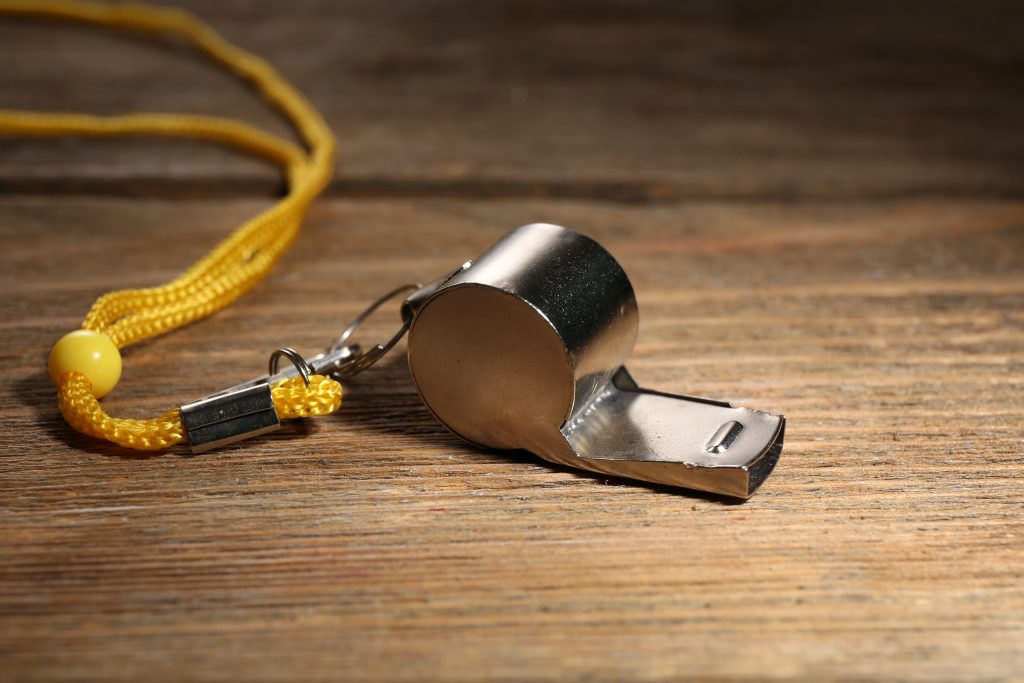
Copyright: serezniy / 123RF Stock Photo
If You Are a Coach to Female Athletes, You Need to be Walking the Walk Right Now
No one cares how many wins you have, trophies you’ve stacked, Twitter followers you’ve acquired, coaching licenses you’ve gotten, and acronyms you laid out like the alphabet behind your name.
What young female athletes need is coaching.
This encompasses more than the x’s and o’s, the tactics and the formations, the wins and the rankings, the certifications, the strength and conditioning programs, and the ACL reduction training.
Speaking of ACL, I don’t want to write a dissertation on it in this article.
Of course, ACL reduction is a serious issue that you need to understand and be able to execute in a practical setting.
But what you need to know is coaching the female athlete extends far beyond the ‘oh, well females just have wider hips’ comment.
Yes, anatomy and physiology play a role when customizing strength and conditioning and programming, there are multiple layers, mental and emotional, when working with girls.
With that said, I’m going to gloss over the tip of the iceberg, so here is what you need to know as far as physical training for the female athlete:
1. Menstrual Cycle
The menstrual cycle is something to be aware of in terms of oscillations in sleep quality and energy levels. An excellent tracking app to use is FitrWoman that helps you to understand what phase of the cycle they are in, and if they need an extra push to recover harder and dial in on nutrition, as well as sprinkle in any extra supplementation.
To that end, training won’t necessarily have to change, but I recommend finding ways to optimize their physical and mental recovery during the pinnacle times of fatigue, depletion of iron, and oscillation of hormone levels.
Meditation is just one way to navigate the hormonal storm, and ensure there is physical recovery as well as mental clarity.
What is so cool about this app, is individual athletes can track their cycle and take notes on consistent symptoms they experience during each phase.
It bodes well to help girls be more aware of how their bodies are feeling, and provide guidance as far as recovery strategies, whether it’s through better sleep, or recovery methods like extra meditation or nourishing with more calories during times of fatigue and depleted focus.
The menstrual cycle is something you shouldn’t shy away from, but rather, a conversation we should be open about to better serve your female athletes.
Period. See what I did there? ;-O
2. Girls Grow Too
Studies say the growth spurt can happen as early as age 10, so female athletes can begin to learn movement patterns and progress with strength training monitored by a professional.
According to Stracciolini et al, such programs will enhance muscular fitness, improve sport performance and reduce the chance of sports-related injuries.
Ensure to expose young female athletes to a variety of movement during this time to develop basic motor skills, such as balance, coordination, and stability. Executing a program with a diverse template also inspires development of the neo-cortex, tapping into the left and right hemispheres of the brain.
Since I work with mainly soccer players, the more I can get them to use their upper bodies so they aren’t over-training their lower extremities, the better.
Strength of the upper body, from the back, to the shoulders, to the torso, creates a chain reaction to how the lower body operates. If the shoulders and back are weak, the glutes are inhibited, thus making the knee joint more unstable. If the chest is tight, the hip flexors are tight, causing more anterior loading the patella tendon.
Growing pains, anyone?
Remember: During the growth spurt, female athletes need their entire muscular system to be built.
3. Growth Spurt Continued
The time when females are growing the most rapidly in terms of height can cause disturbances in coordination. The growth spurt can be a tough time for young athletes, as accelerated growth leads to disturbances in coordination and overall movement, and can impact performance negatively (Quatman-Yates, Quatman, Meszaros, Paterono, et al. 2012).
You as the coach must be patient when this happens, and be careful not to program a practice with full field squat jumps and suicides, or worse yet, endless high impact runs on the concrete stadium steps.1
Joint kinematics tend to be more precarious during the growth spurt, so when it comes to more technical movements like single leg training and plyometrics, be sure to not get wild.
Focus on technique and quality reps.
Then add speed as they get more advanced
4. Growth Spurt & Body Image
After the growth spurt (PHV), female athletes experience more weight gain and an increase in fat mass (Peak Weight Velocity). It is critical coaches understand this as it can hinder speed and other factors of performance.
A study done by Tønnessen et al. states it may be beneficial for female athletes to have a greater focus on neuromuscular training during this period. Things like movement patterns (i.e. Squat), balance, mobility and stability are nice to revisit during each session.
Increases in fat mass and reductions in relative strength often occur alongside reductions in coordination and neuromuscular control (Tønnessen 2015).
So here’s a hint: Be patient and meet them where they are, focus on the controllables, and fill them with empowering phrases that don’t allude to body image. (i.e. “you’re not fit and need to drop weight” can be turned into “let’s make you even faster and stronger!”)
Check out this article on female athlete body image HERE, and how you can encourage them to chase performance and not the number on the scale.
Girls are just as competitive as boys, so reinforcing things like change of direction ability, speed development, and acceleration empower them to be their most explosive selves on the field.
5. Girls Won’t Break
Generally speaking, female athletes have similar strength and conditioning programs to boys. Yes, you want to consider differences in physiology and look at athlete assessments before writing their programs, and tweak with accessory movements accordingly.
But I will say this: Just because they are females doesn’t mean you tip-toe around their fitness programming and treat them like fragile little snowflakes.
Female athletes will also lift weights like the boys.
- They will strengthen their bodies.
- They will do explosive work.
- They will do push-ups.
- They will do pull-ups.
6. Focus On What You Can Control
Telling young girls, “yeah, you have wider hips, so you’re more susceptible to ACL” is defeatist, and doesn’t present a solution.
Since anatomy is out of a girl’s control, it’s best to empower her and focus on what she can control to reduce chance of knee injury.
You can mention things like working on core stability to handle high forces in the game, the ability to pump the brakes for better deceleration and rapid change of direction, building powerful hamstrings and gluteals for speed production, or bolstering explosiveness through the hips with Olympic lifts.
Let’s Talk Emotions
Now that the physical training is out of the way 1,000 words later, let’s dive into the meat and potatoes of this article.
Here’s the thing: I love teaching physical training, writing strength and conditioning programs, understanding the impact of physiology on performance, and solving the ACL injury puzzle.
Truthfully, though, these all should be a bare minimum requirement for anyone working with female athletes – strength coaches and team coaches alike.
If you’re a team coach, you don’t need to have a Certified Strength and Conditioning Specialist slapped behind your job title…you just need a passion for executing the basics of injury reduction. Too, you need to show great care for putting your girls’ health first.
After all, being an athlete is truly a lifetime pursuit. We want these girls to put their bodies in the best position possible so they can go through their career unscathed.
Even when the final whistle blows, these girls are athletes for life who will want to be resilient for new, adventurous hobbies down the road.
You have the opportunity to inspire the power of movement and health with your words, your actions and example.
Here are some skills that are non-negotiable:
– Active listening
– Empathy
– Relationship building
– Respect
– Trust
– Encouragement
– Human and character development
Let me say this: It’s a blessing to be a coach to female athletes – to be able to inspire the next generation of girls, and turn them into women as confident as Beyonce, as fearless as Sansa Stark, and as strong as Serena Williams.
You have the opportunity to empower, Coach.
I’d be remiss not to mention what I’ve found over the past eight years of being a strength and conditioning coach to female athletes is, I play a pivotal role in their lives mentally and emotionally.
The girls who have been with me the longest, who fell in love with the process, and who still, are hungry to be better women today physically, mentally and spiritually, are the ones who I connected with beyond the pitch and weight room.
Truthfully, I don’t believe sports teach life lessons.
Coaches do.
With that said, here’s a friendly reminder:
You are in the human business.
How Well Do you Know Your Female Athletes?
Do you know how their grades are in school? Do you know what other talents they have? Do you know if they have siblings? Do you know if they had a solo at the band concert? Do you know if they are president of the student government at school? Do you know if they love baking? Do you know if they have good or bad sleep habits? Do you know what their stress level is before training begins?
This stuff matters.
Things like stress, sleep, hormonal oscillations from the menstrual cycle, relationships, family life and so forth impact how they show up for you at practice and in games.
Whether this is on the pitch, in the weight room, or outside of sports, are you amplifying their talents? Let alone, are you encouraging them to dig out the gems inside of them and believe in themselves? Are you showing them the light of lifetime health and fitness? Are you allowing them to vent about school stress so they have more focus at training?
I’m passionate about the soft skills of coaching, to say the least.
My cat, Sergio, is too.
So soften up.
It pains me to still see abusive coaching run rampant today. Worse yet, it’s terrifying to know girls are in the hands of leaders who are narcissistic and downright un-empathetic, who say “f this!” and “f that” and “you suck” and “you’re messing up!”
To add, these same people claim they love coaching girls because “girls are easier to coach!” or “girls do whatever you say!”
Let’s unpack these dangerous quotes for a second.
For one, be careful when you utter that girls are easier to coach and will listen to everything you demand of them.
As Krista Stoker from S2 Breakthrough Performance alludes to in this webinar, your words matter, given the woman you’re trying to build.
This brings me to a profound question: Do you want to build strong, empowered women?
Because if so, the last thing you want to say out loud is “girls do whatever you say!” which implies you’re creating doormats who don’t stand up for themselves, who don’t set boundaries, and who say “yes” to everything.
As these girls blossom into professional women, it’s critically important they know to stand up for themselves in the work place, set boundaries with colleagues, and stand confident in their crafts.
Your words, your actions, your habits must be in alignment with the type of women you want to build.
Even when you speak to other women, especially a female colleague or coach, are you treating them in a way that comes from love and respect?
Your young female athletes are watching.
Are you undermining her, or uplifting her as a professional?
Your young female athletes are observing.
Are you berating here, or encouraging her?
Your young female athletes are analyzing.
Taking the conversation back to the opening line, if you’re a coach to female athletes, you need to be walking the walk right now.
And this doesn’t just go for male coaches. It goes for everyone across the board.
Women must build other women up, too.
I’m a female coach and in no way am I exempt from this discussion.
I, too, have to uplift my female colleagues and share their work not just because they’re women, but because they are excellent at what they do.
I, too, have to re-evaluate the way I behave, talk and listen to young girls.
I’m not perfect, in fact far, far from it.
Being a coach to hundreds of female athletes is a job as hard as destroying the Ring of Power. It’s a burden you definitely don’t want to screw up, but there’s bound to be battles along the way.
With that said, the art of coaching female athletes is a journey that lasts a lifetime – to deeply understand what ignites them, what inspires them to fall in love with the process, and more importantly, what they need from you to become the best human they can be.
Maybe it’s an ear.
Maybe it’s encouragement.
Maybe it’s telling them you believe in them.
Maybe it’s discussing the Hayley and Justin Bieber wedding.
Admittedly, I remain critical of myself, which is why I have an insatiable desire to study human psychology, behavior change, leadership theory and motivation. (Motivational Interviewing and Inside Out Coaching are my favorite books I recommend for all coaches).
Becoming deeply self aware of my actions and words isn’t an easy pursuit, but it makes me a more authentic, inspiring leader with a growth mindset.
Expounding further, taking inventory of my actions off the pitch, and ensuring I build other women up in my respected field is a behavior that translates onto the field in a leadership role.
Who Are You When No One is Watching?
Though it can be a punch to the gut when you examine yourself and how you’ve fallen short, your young female athletes need you to grow, too.
Evolve and do better, Coach.
Indeed, self awareness is a wonderful thing…
If you aren’t a good listener and offer unwanted advice when a girl is crying, can you listen and make sure she feels heard without saying a word?
If you are treating other women in your life with disrespect and asking them for favors in return, can you treat them like professionals and promote them as talented at their crafts regardless of if they give something in return or not?
If you show other women in your life jealousy, can you show them support and come from a place of love?
If you are scared of other women becoming too powerful and successful at what they do, can you stop operating out of a place of fear, and work on pouring love into yourself and mastering your craft first?
If you aren’t empathetic and are quick to dismiss others’ feelings, can you hold space for your young female athletes to express their worries and frustrations?
If you are shouting profanity and talking down to adolescent girls at 120 decibels, can you act like a professional who can speak eloquently and calmly?
If you are only focused on the wins and rankings and the numbers, can you find a way to develop the character of your girls who will blossom to be driven, confident and empowered professionals one day?
What is your end goal as a coach to female athletes?
Last I looked, no one remembered a coach only for their rolling list of wins and championships.
They also remembered them for their impact and life lessons beyond the game.
The memories infused with laughter and joy.
The training sessions that were competitive and taught grit.
The drills that were fun and taught levity and inspired creativity.
The workouts that allowed them to battle and push each other into becoming strong women.
Female athletes need human-centered coaching.
They need you to set the example, be a leader, and have your actions speak louder than words.
As I alluded to earlier, it’s a blessing to be able to bring out the jewels of the next generation of young girls – to show them that they are multi-dimensional, amazing humans with beauty and strength.
And too, to show them that they are capable of so much magic in sports, school, and career.
I urge you, let your female athletes shine, as you cheer them on in the shadows. Sure, you won’t get the limelight, but you’ll allow them to sparkle.
So continue to learn.
Master your craft of coaching girls, both physically and mentally.
Be a constant student.
Admit your faults.
And do better.
Most critically, though, leave your ego at the door because building strong women starts with you, Coach.
About the Author
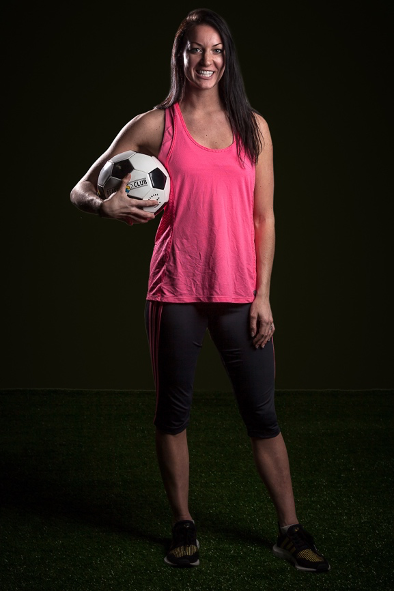
She believes in long-term athletic development and the gradual progression of physical training for safe and effective results. She helps youth master the basic skills of balance, coordination, and stability, and ensures they blossom into powerful, fast and strong athlete when they’re older. She has written two books on youth strength and conditioning, Total Youth Soccer Fitness, and Total Youth Soccer Fitness 365, a year-round program for young soccer players to develop their speed, strength and conditioning.
She also just launched a coaching education course on training the young female athlete, Total Youth Female Athlete Fitness, a video course on performance and injury reduction in a practical setting
Follow Erica on Twitter and Instagram
The post Building Strong Women Starts With You, Coach appeared first on Tony Gentilcore.
Building Strong Women Starts With You, Coach posted first on tonygentilcore.com

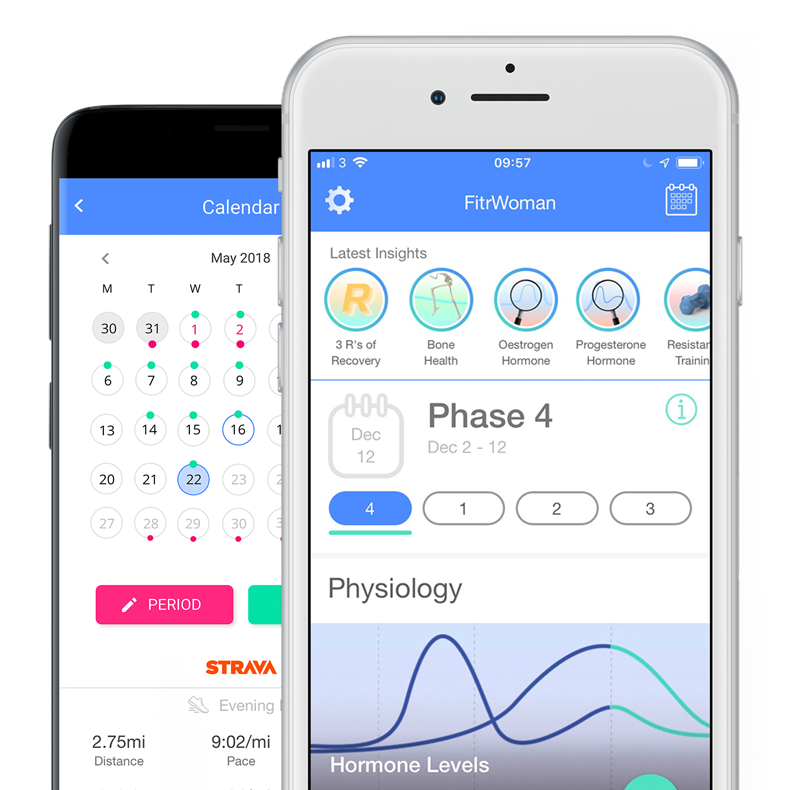
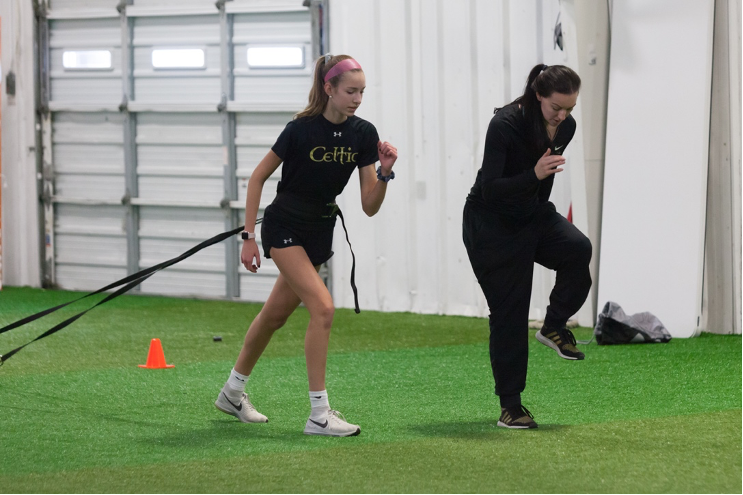
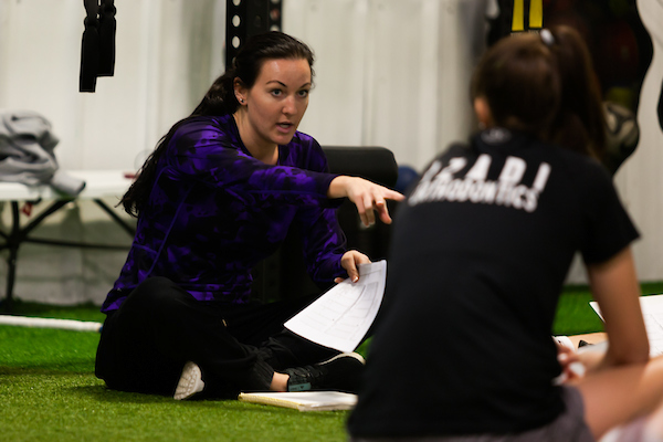
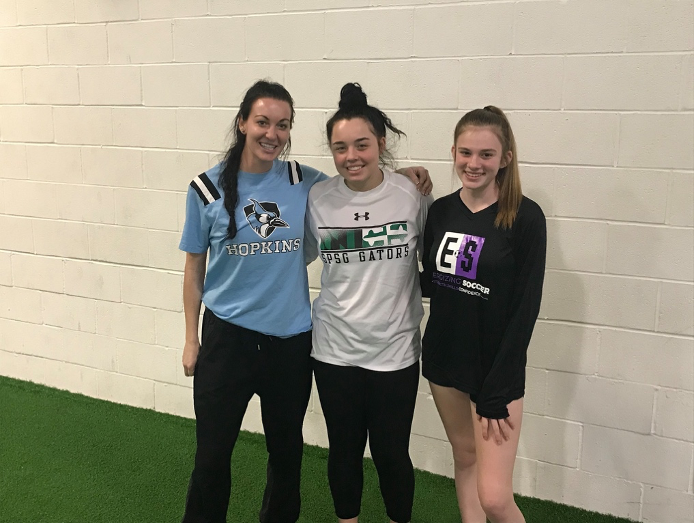
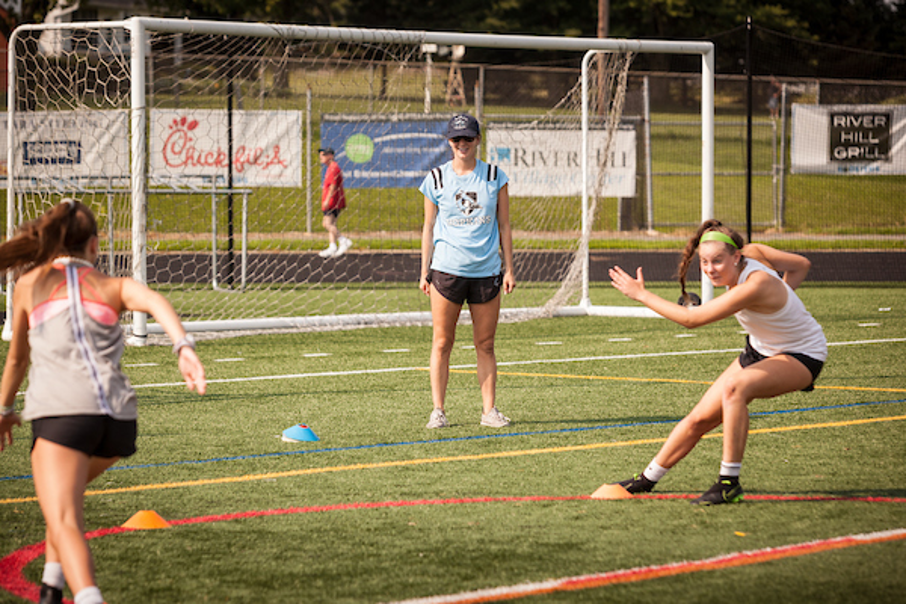
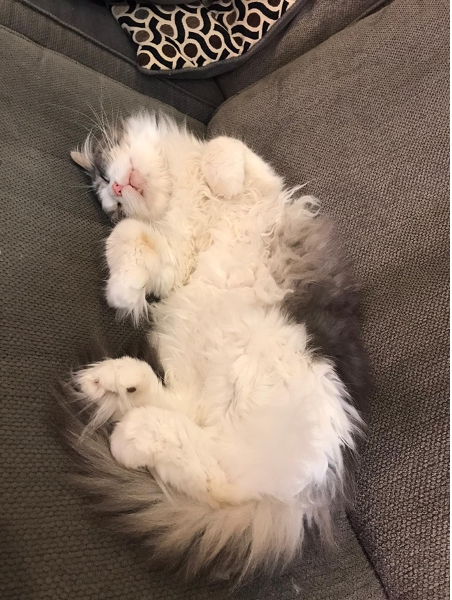
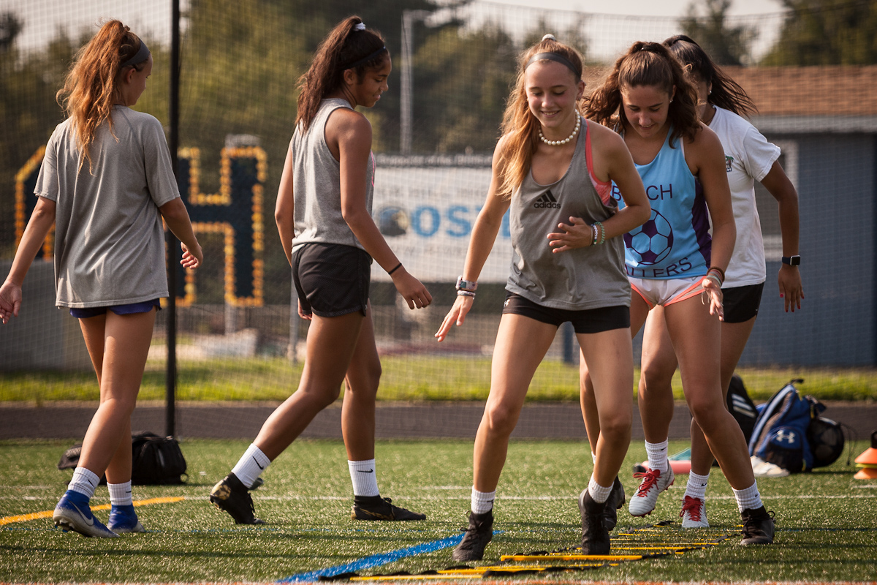
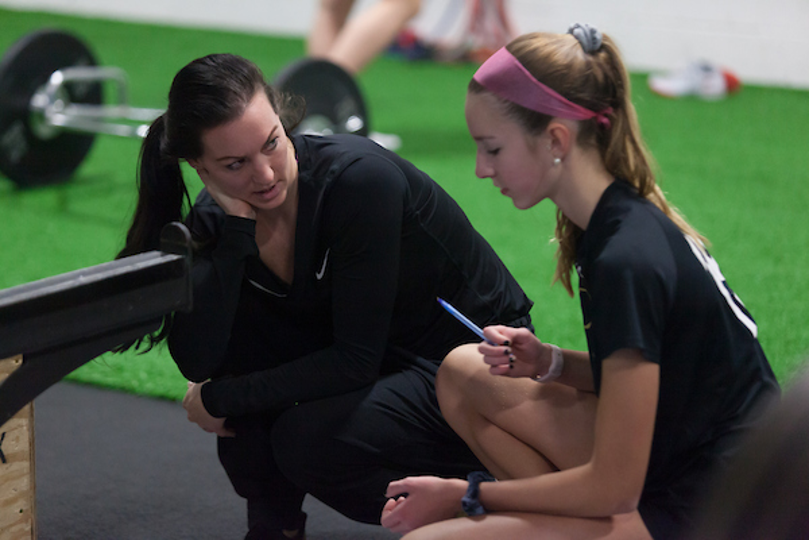
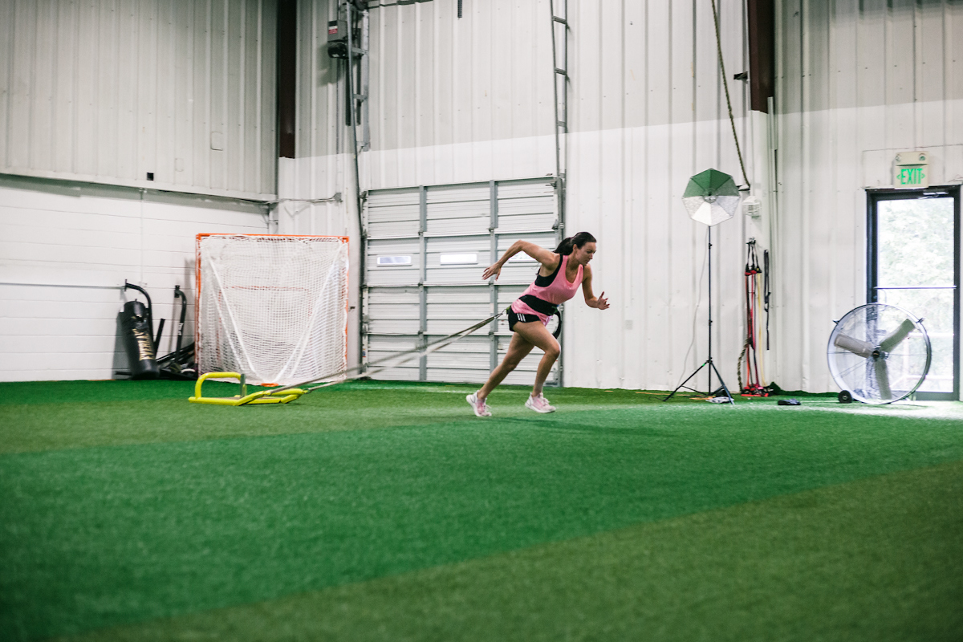
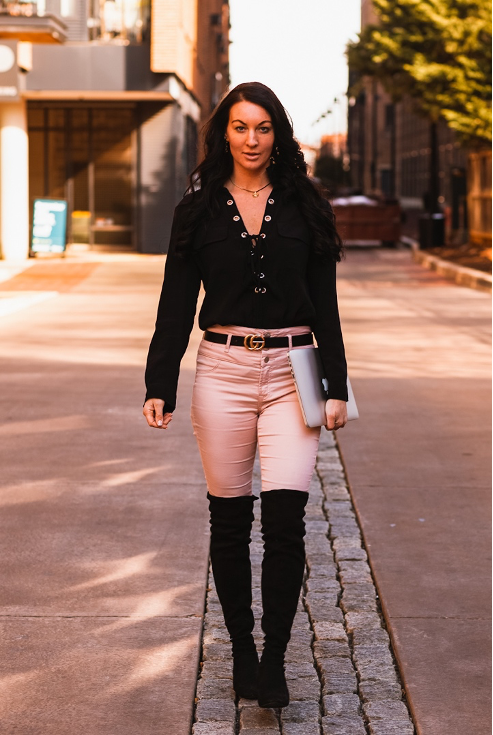
No comments:
Post a Comment